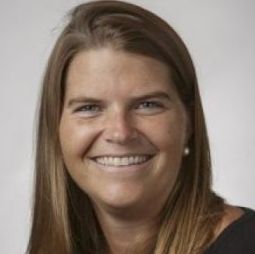For Proof of Government Inefficiency in Drug Purchasing, They Went to Costco
For those who take regular prescriptions for a chronic condition—which many seniors do—the savings at Costco escalated.
Erin Trish, PhD

Health systems that want to save money on a major cost of delivering care might look no further than their nearest Costco.
That’s what a health economics research team from the Leonard D. Schaeffer Center at the University of Southern California to highlight Medicare pays an extra $2.6 billion for generic drugs, thanks to layers of middlemen who negotiate prices for government—but pocket some of the savings. The study, led by Erin Trish, PhD, appeared JAMA Internal Medicine.
When reimbursement policies eliminate cost-sharing for some prescriptions—making the “cost” invisible for some patients—those taking the drugs don’t realize that the government is spending billions for prescriptions cost less at nearby warehouse outlets, such as Costco.
The authors point out that while there’s been plenty of attention to brand name drugs with eye-popping list prices, most of the drugs that Americans take—both in the hospital or at home—are generic medications. In fact, 88% of Medicare Part D prescriptions dispensed in 2018 were generic, so any savings retained by pharmacy benefit managers (PBMs) could quickly add up.
The findings suggest these practices, which work against Medicare, beneficiaries, and the taxpayers, deserve a closer look, Trish said in a statement released by USC.
“Our analysis shows that in systems like Costco’s, where incentives are set up to deliver value directly to the consumer at the pharmacy counter, that’s what happens,” said Erin Trish, associate director of the USC Schaeffer Center and an assistant professor of pharmaceutical and health economics at the USC School of Pharmacy. “It’s time to fix those incentives in the Medicare Part D system to put the patient first.”
To conduct their study, the team compared what Medicare Part D plans paid for 184 commonly prescribed generic drugs, including patient out-of-pocket costs, with the cash prices that Costco members were charged for the same drugs in the years 2017 and 2018.
They found the government overpaid, and by a lot: after analyzing 1.4 billion Part D claims, they found Medicare overpaid 13% in 2017 and close to 21% in 2018, compared with the Costco customers.
For those who take regular prescriptions for a chronic condition—which many seniors do—the savings at Costco escalated. Members who took advantage of the 90-day fill option in 2018 saved whopping 53% over what Medicare plans paid. Medicare plans overspent. Medicare plans overpaid on 30-day and 90-day fills by 43%, the study found.
PBMs have been in the crosshairs from government leaders and advocacy groups alike in recent years. Vertical integration with payers has made them more powerful, and as a result many states have taken action to protect consumers and their own Medicaid budgets. Federal legislation has been introduced to limit or ban spread pricing, but any effort to rein in PBM practices will have unforeseen effects. Advocacy groups in the cancer care community say efforts to stop spread pricing have resulted in the creation of new classes of fees to get revenue another way.